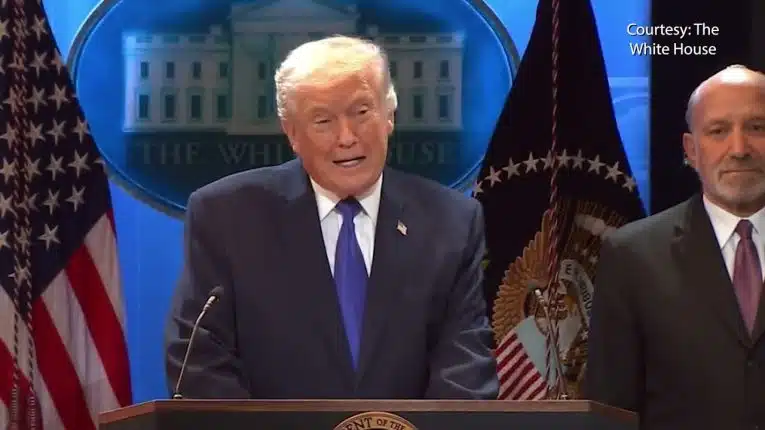
Former President Trump is kicking off his 2024 reelection campaign with packed rallies across the country, while presumptive challenger Gov. Ron DeSantis appears to be laying the groundwork for a formal announcement soon.
Early polling shows relatively strong differences in how the two are viewed and their core supporters, but the most notable difference is the strong lead Trump commands over DeSantis with white non college voters who were a core GOP constituency in 2016, 2020, and the 2022 midterms.
Trump is the GOP frontrunner, with a new national Quinnipiac University poll showing Trump garners 42% of the vote among Republicans and leaners in a potential 14-candidate poll while DeSantis comes in second at 36%.
The poll also shows Trump beats DeSantis 48% to 31% among Republicans, but DeSantis beats Trump 55% to 24% with voters who lean GOP. Trump beats DeSantis 53% to 36% among ‘very conservative’ Republicans but beats DeSantis by a less impressive margin — 41% to 38% — among those who lean conservative.
Previous polling found Trump and DeSantis are viewed very differently, with Americans placing more trust in Trump on economic issues foreign policy and immigration, and more trust in DeSantis on education and covid-19. YouGov polling shows by a greater than two-to-one margin, Americans say they trust Trump more than DeSantis to handle the economy, taxes and government spending, foreign policy, and immigration, but trust DeSantis more to handle education and covid-19.
YouGov surveys also show Trump is a more polarizing figure than DeSantis, and more Americans have a defined opinion of Trump, while close to a quarter of Americans are undecided on DeSantis. The public largely sees Trump as more authentic, patriotic, and decisive, but sees DeSantis as more conservative, more “willing to compromise” and more “loyal to the GOP”.
Like in the previous two presidential elections, Trump continues to dominate with white non college voters in polls, beating DeSantis by a margin of 47% to 38% among non-college whites. DeSantis beats Trump 56% to 22% with college educated whites.
Non college whites continue to vote overwhelmingly Republican according to Democratic research firm Catalist, with Trump amassing 63% of their vote to Biden’s 27% in 2020. In fact, when breaking down Trump’s coalition of voters, almost 60% of Trump voters in 2020 were white non-college Americans.
In the 2022 midterms, the GOP won white non college voters by a startling 34 points, up from 24 points in 2018.
The 2020 general election marked the highest turnout rate for white non college voters in over 20 years and contributed to an overall rise in the white vote from 65% four years ago to 71% in 2020. Nationwide, the white non-college turnout rate increased 6 points, rising from 58% in 2016 to 64% in 2020 according to new analysis from Brookings.
In 2020, the white non-college vote increased significantly in the pivotal states of Arizona, Wisconsin, and Michigan, and played a crucial role in several other tight races.
In Arizona, the white non college vote increased 10 points from 61% in 2016 to 71% in 2020. Georgia and Texas each saw a 9-point spike in white non-college voters, with Georgia rising from 57% to 66% and Texas rising from 54% to 63%.
Pennsylvania saw an 8-point spike in the white non college vote from 57% in 2016 to 65% in 2020. Wisconsin and Michigan saw a 5 and 4-point spike in the white non-college vote respectively, with Wisconsin rising from 68% in 2016 to 73% in 2020 and Michigan rising from 59% in 2016 to 63% in 2020.
Non-college whites continue to play a crucial role in politics and became increasingly engaged in the last two presidential elections as core Trump supporters. Trump is the frontrunner with white non college voters in early polls, while DeSantis dominates with higher-educated white Republicans. Non-college white turnout will have a defining impact in the primaries, and their participation or absence will shape the general election.
Manzanita Miller is an associate analyst at Americans for Limited Government Research Foundation.






